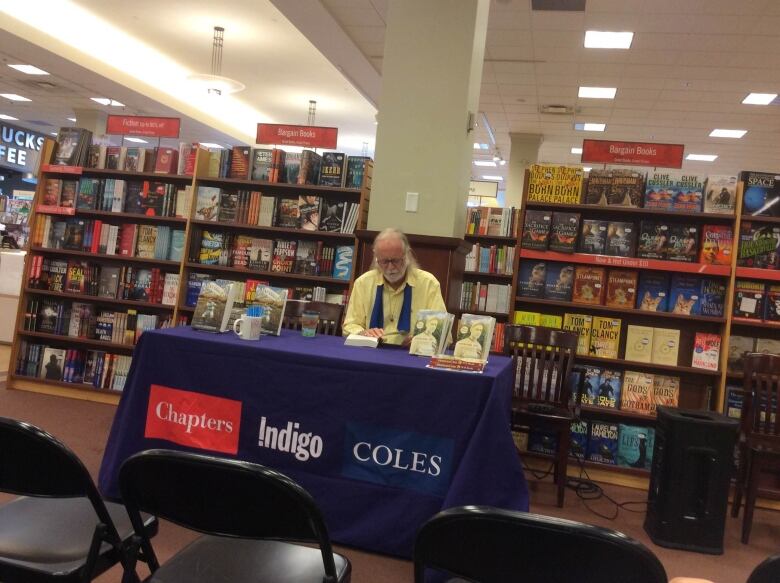W.P. Kinsella 'thrilled' he could end his life under assisted-dying legislation


Carolyn Swayze announced the death of Canadian author W.P. Kinsella on Friday.
His literary agent for more than two decades had received word from the writer's daughter that he'd opted for a physician-assisted death in Hope, British Columbia, at the age of 81. The author of the renowned novel that inspired the movie Field of Dreams had suffered from kidney failure related to his diabetes.
"I knew him first as a friend," Swayze tells As It Happens host Carol Off. "The most difficult, complex and contradictory friend I've ever met, quite honestly."
Despite his demeanour, Swayze remembers his kindness to her. She said he was "exceedingly generous" in providing her with space to work on her own writing.
Their friendship turned into a professional relationship in 1994, when Swayze agreed to become his agent.
"We had evenings where we read one another's writings. We celebrated little successes. We had a lot of fun," she says.
Baseball was one of Kinsella's favourite subjects to write about. His most famous work was 1982's Shoeless Joe, which was later adapted into the classic Kevin Costner film Field of Dreams.

Kinsella faded from public attention after a car hit him in 1997, giving him a serious head injury. According to Swayze, he lost his senses of taste and smell.
"And he lost his creative impulse," she says. "He was moody and depressed, and simply couldn't focus."
Toward the end of his life, Swayze said Kinsella worked hard to complete a book that will soon be published posthumously, Russian Dolls, which includes a mix of published and unpublished stories.
"That's why it's called Russian Dolls," she explains. "The stories nest to form a novel as a result. It's not all new material, but he was able to focus on that very carefully."

But as his health failed, Kinsella ultimately chose to take advantage of Canada's new assisted dying legislation. In this excerpt from her interview with As It Happens, Swayze describes that decision.
CAROL OFF: When did he start to think about assisted dying as an option?
CAROLYN SWAYZE: He hadn't mentioned assisted dying when I last saw him. I thought that he would decline further attempts at dialysis, and I thought that was going to be a terrible, terrible death. I suggested that he must get to the hospital and see if there wasn't some remedy. It was after I was gone that he realized through a friend that Bill C-14 had passed. He was thrilled with that news. He took that on himself, to solve the problem.
And it was fast-tracked. He did the paperwork. He was a perfect candidate, because there was no reasonable prospect of any kind of recovery, and he was of perfectly sound and lucid mind and knew exactly what he was doing.
CO: Did he have support from his family? Were they with him?
CS: Yes. His daughter Erin was with him and was as excited as he was by the news. She had been caring for him for years and had seen how hard it was. And she had experience with other family members, caring for them up until their time of death. So she was happy that he was able to do this.
CO: This could have been a private decision that no one knew about. Why was he open about it, do you think?
CS: He'd seen his last wife go through an unspeakable amount of pain, disfigurement, until her death, when there was no relief for her. She died Christmas in 2012. I'm sure that was in his mind. It certainly was in his daughter's mind. No one would ever want to see anyone suffer as Barb Turner did. That was my first note to Erin when she alerted me. I asked if he wanted it known, or if I should just say that he had died due to complications from diabetes and kidney disease. And he absolutely wanted it known that he had this choice and this choice was available, and it wasn't hard to do.
For more, listen to our full interview with Carolyn Swayze.